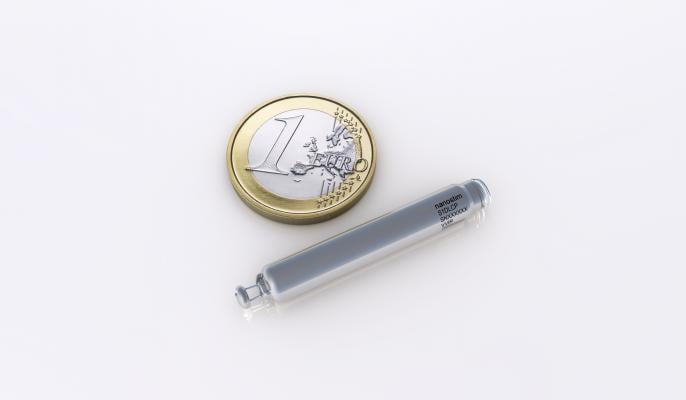
May 9, 2016 — New data presented at the Heart Rhythm Society's (HRS) annual meeting highlighted the long-term safety of the retrievability of the St. Jude Medical Nanostim leadless pacemaker. Two additional presentations also showed that the Nanostim leadless pacemaker is associated with reduced rates of acute and mid-term complications compared to traditional pacemakers with leads and can improve quality of life for patients.
The option to be able to retrieve a leadless pacemaker over time is important for patients with changing medical conditions which may necessitate removal of implanted devices. New data presented at HRS 2016 demonstrated that within the LEADLESS II IDE study and the LEADLESS Observational Study across Europe, the Nanostim leadless pacemaker was successfully retrieved in 14 patients up to 3.2 years post-implantation without any serious adverse events.
“Device retrieval is a desirable feature of implanted leadless pacemakers because it offers physicians options in the future so that we can provide optimal care for our patients,” said Vivek Reddy, M.D., primary investigator of the LEADLESS II study and the director of electrophysiology from Mount Sinai Hospital in New York, N.Y. “We’ve now shown that for patients requiring device upgrades or new leadless pacing options, late retrievability — even up to three years — is possible with the Nanostim leadless pacemaker.”
In two additional clinical presentations, data showed fewer acute and mid-term complications with the Nanostim leadless pacemaker compared to traditional transvenous pacemakers and improved quality of life immediately after implant and over time.
In a new analysis from LEADLESS II study data and real-world claims data from the Truven Health MarketScan database, which tracks U.S. health care claims and Medicare supplemental insurance encounters, an international group of researchers found that the Nanostim leadless pacemaker resulted in fewer complications in both the first month post-implant as well as in the first two years post-implant. The data also demonstrated a growing benefit over time with patients receiving a leadless pacemaker, showing a clear advantage in combating infections and lead-related adverse events.
The Nanostim leadless pacemaker operates like a traditional pacemaker, but is 10 percent the size of a conventional pacemaker. Implanted via the femoral vein with an 18 French introducer, the smallest available for a leadless pacemaker, the device offers patients a minimally-invasive option for pacemaker delivery, potentially reducing overall complications including device-related infection of the pocket and lead failure. The Nanostim leadless pacemaker received CE mark approval in August 2013. To date, more than 1,100 Nanostim leadless pacemakers have been implanted worldwide. The Nanostim leadless pacemaker is undergoing a clinical study in the U.S. under an FDA-approved investigational device exemption.
For more information: sjm.com


 January 05, 2026
January 05, 2026 









